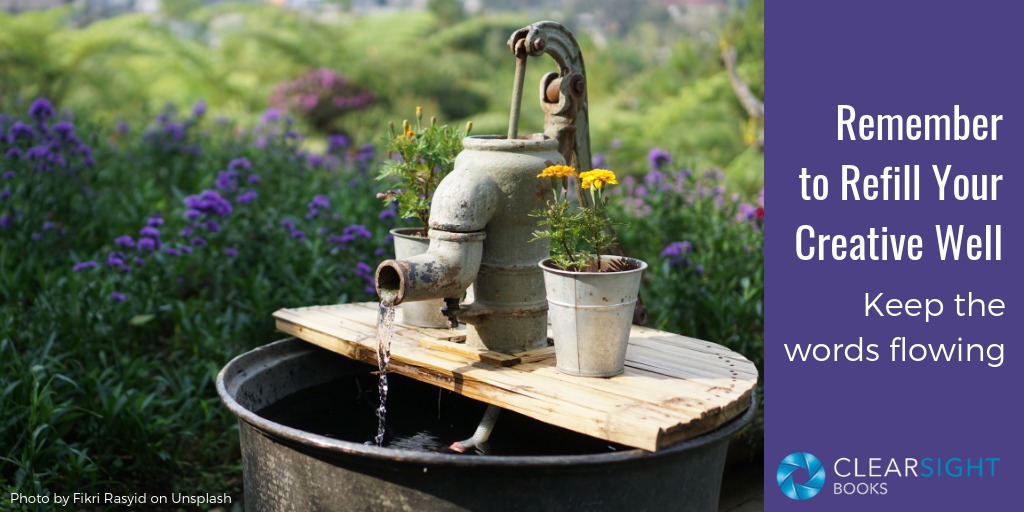
I attended an event last week to honor Jaki Shelton Green, North Carolina’s Poet Laureate. As she spoke—as I drank in her words—I felt a tremendous sense of relief. The words themselves? I couldn’t tell you. But the feeling of craft and inspiration and new ideas…ah.
I hadn’t realized I felt like a parched plant that needed water. “Oh,” I thought. “I need to read more.”
Is your creative well dry?
Creative depletion is a common problem for writers and other artists. Maybe you’ve experienced these warning signs:
- You need to write a book chapter, but you struggle to focus.
- Writing your weekly blog post takes you way longer than usual—nothing clicks.
- You usually have several ideas for articles; now you can’t think of a single one.
In a nutshell, you’re pushing hard on your creative project and still getting nowhere.
Creative activity—writing or otherwise—requires energy. And you can expend only so much energy before you run out. You must restore it.
In her book The Artist’s Way, Julia Cameron describes this energy reservoir as a “creative well.” If you keep pouring creative energy into your projects, you’ll run dry. But you can refill the well by taking in new images, ideas, sounds, and sensations. Then you’re ready to draw from it again.
(Water metaphor not working for you? Try this: You keep swiping the debit card for your creative energy bank account, but if you haven’t made any deposits, you get overdrawn. Or this: You can press on the gas pedal all you want, but if the tank is empty, the car ain’t going anywhere.)
Refill your creative well
When you find you’re struggling with your writing, assess the status of your creative reserves. If it’s time to fill up, make replenishment a priority.
- Get outside your normal routine. Go beyond the typical downtime activities such as bingeing on Netflix or surfing online. Do something that disrupts your everyday pattern.
- Look for inspiration in related areas. If you’re working on a business book, try reading poetry or fiction—see what interesting language you find. If you’re working on a presentation, watch some famous speeches online.
- Use a different part of your brain. If you spend a lot of time thinking, do something physical, say, dig in the garden. If you work visually much of the time, do something aural.
- Look for micro opportunities. When you begin to feel depleted, step away from your creative project. Take a walk, meditate, or spend an hour at a museum.
- Don’t wait to feel depleted before you fill the well. In The Artist’s Way, Cameron assigns “Artist Dates,” weekly expeditions to explore something fun. In other words, PLAY on a regular basis.
It might seem counterintuitive to stop working on a project when you are feeling pressure to make progress. But the time away for replenishment often speeds up the actual work. The effort eases and the ideas improve.
Protect your creativity from the calendar crush
Why do I talk about creative depletion and replenishment now? Because we’re entering what for many of us is an extraordinarily busy time of year. On top of our regular stress we have the final push to wrap up annual goals, and then we layer on the winter holidays with their attendant social events, family, and to-do lists.
It’s easy to get extra tapped out creatively.
Anticipate an increased need for restoration over the next couple months. Fill your creative well regularly, so you can keep writing without undue struggle.
Me? I’ve got a whole lot of poetry reading lined up…
Need some help on your manuscript, or just some reading recommendations? Give me a shout at 919.609.2817. I can talk books all day!

